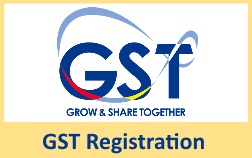Singapore GST Registration: What You Required to Know Before Applying
Singapore GST Registration: What You Required to Know Before Applying
Blog Article
Making The Most Of Tax Performance: Expert Tips on Navigating the GST Enrollment Puzzle for Small Companies
Browsing the complex landscape of Goods and Services Tax Obligation (GST) registration can be a labyrinthine job for tiny organizations aiming to optimize their tax obligation effectiveness. In this conversation, we will certainly check out skilled insights and actionable advice that can encourage tiny companies to browse the GST enrollment maze effectively and maximize their tax obligation performance.
Qualification Criteria
Eligibility requirements for Small company GST Enrollment include certain requirements that organizations should meet to adhere to tax obligation guidelines. To qualify for GST enrollment, an organization needs to have a yearly turnover surpassing the limit established by the tax authorities, which differs by nation. Furthermore, services associated with inter-state supply of services or products, or those offering products online, might be called for to sign up for GST, regardless of their turnover. It is essential for companies to accurately determine their eligibility based on these turnover thresholds to prevent fines for non-compliance. Singapore GST Registration.

Documents Needs
To successfully finish the process of GST registration, tiny services need to guarantee they have all needed documents in order. The needed documentation typically consists of proof of organization enrollment or identification, unification and address evidence of business proprietor, photographs, savings account details, and evidence of the primary area of service. Additionally, organizations require to give details of their organization activities, consisting of the goods or services supplied. It is critical to make sure that all documents are accurate, up to date, and in the specified format to stop delays or denials during the registration procedure.
Besides the compulsory records, organizations may likewise be required to send added details based upon their particular situations. This might include files related to partnerships, the permission of signatories, or any other pertinent agreements. Keeping all necessary documentation organized and readily accessible can streamline the registration procedure and aid organizations conform with the needs efficiently - Singapore GST Registration. Failing to give the needed documentation may cause hold-ups or perhaps rejection of the GST registration application. Meticulous focus to detail and adherence to the paperwork guidelines are important for blog here a successful GST enrollment process for small companies.
Timing Considerations
Thinking about the important documents requirements have actually been meticulously dealt with, the following important aspect website here for little organizations beginning on the GST registration procedure is the tactical administration of timing factors to consider. Timing plays a critical function in GST registration, influencing not only conformity yet likewise financial elements of the business. Tiny businesses require to thoroughly prepare the timing of their GST enrollment to make the most of benefits and minimize potential dangers.

In addition, organizations need to straighten the timing of their GST enrollment with their operational readiness. Sufficient preparation, such as upgrading audit systems and training team, is crucial to perfectly integrate GST requirements into day-to-day procedures. By purposefully managing timing considerations, local business can browse the GST enrollment process efficiently and enhance their tax performance.
Registration Process Tips
Efficiently browsing the i thought about this GST registration process calls for small companies to execute strategic and aggressive enrollment process ideas. This includes organization registration files, evidence of address, financial institution statements, and identification evidence of the company proprietors.
In addition, understanding the thresholds and demands for GST enrollment based on the details state or territory where business runs is important. Some states have different turn over limits that set off compulsory enrollment, so being informed about these thresholds can assist companies intend in advance.
An additional valuable suggestion is to think about seeking expert aid from accountants or tax consultants who specialize in GST registration. Their proficiency can improve the procedure, minimize mistakes, and make sure compliance with all guidelines.
Compliance Best Practices
Small companies must focus on compliance to avoid charges and keep a good standing with tax authorities. Tiny company proprietors need to frequently assess federal government guidelines and seek professional recommendations if required to guarantee they are fulfilling all requirements. By integrating these conformity ideal techniques right into their operations, small companies can navigate the intricacies of GST enrollment with confidence and effectiveness.
Verdict
In conclusion, small companies can browse the GST registration labyrinth by guaranteeing they satisfy eligibility requirements, collect needed paperwork, consider timing implications, comply with enrollment process ideas, and stick to compliance finest practices. By optimizing tax obligation effectiveness with appropriate GST registration, companies can improve their financial management and operations.
Browsing the detailed landscape of Item and Solutions Tax (GST) registration can be a labyrinthine task for small businesses intending to optimize their tax efficiency.Eligibility requirements for Small Company GST Enrollment incorporate certain requirements that businesses must fulfill to abide with tax regulations. The called for documents normally includes proof of organization registration or unification, address and identity proofs of the organization proprietor, photographs, financial institution account details, and evidence of the major area of service. Additionally, organizations need to provide information of their business tasks, including the items or services provided.Efficiently navigating the GST registration procedure requires tiny companies to apply proactive and strategic registration procedure suggestions.
Report this page